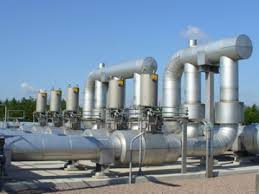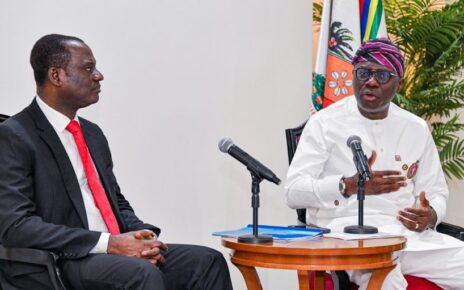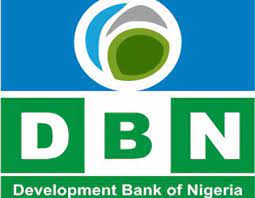President Muhammadu Buhari on Wednesday estimated that Nigeria lost about $50 billion worth of investments in the last 10 years due to the uncertainty of non-passage of the Petroleum Industry Bill (PIB), lack of progress and stagnation in the nation’s hydrocarbon resources industry.
The President, who made the remarks at a ceremony to mark the passage of the PIA, which preceded the Federal Executive Council (FEC) meeting at the State House, blamed past administrations for the stagnation in the sector for not mustering the required political will to enact a new Act critical to the transformation of the petroleum industry during the period.
This is even as he mandated the nine-man steering committee, headed by the Minister of State for Petroleum Resources, Timipre Sylva, constituted to oversee the implementation of the new Petroleum Industry Act (PIA) within one year, to complete its assignment.
The President noted that in the past 10 years, the stagnation in the petroleum industry adversely affected the nation’s economic growth, adding that his assent to the PIB on Monday marked the end of decades of uncertainty and underinvestment in the petroleum industry.
He said: “We are all aware that past administrations have identified the need to further align the industry for global competitiveness, but there was lack of political will to actualize this needed transformation.
This lack of progress has stagnated the growth of the industry and the prosperity of our economy.
This administration believes that the timely passage of the Petroleum Industry Bill will help our country attract investments across the oil and gas value chain.
“In view of the value our nation and investors will derive from a stable fiscal framework for the oil and gas industry, our administration has found it necessary to work with the two chambers of the National Assembly to ensure the passage of the PIB”, Buhari added.
According to him, the signing of the bill is part of the administration’s commitment to building a competitive and resilient hydrocarbon resources industry for the purposes of attracting investmentd, improving the nation’s revenue base, creating jobs and supporting the nation’seconomic diversification agenda.
The president further pointed out that as a “nation that depends on oil resources for the development of other sectors, Nigeria runs a petroleum Industry that is governed largely by laws enacted over 50 years ago such as the principal legislation; the Petroleum Act of 1969 and other obsolete legislations’’.
He described the assent of the bill to “Petroleum Industry Act 2021” as an era marking the beginning of the journey towards a competitive and resilient petroleum industry that will attract investments to support the nation’s Economic Recovery and Growth Plan.
He expatiated: “The ‘Petroleum Industry Act 2021’ creates a regulatory environment that would ensure efficiency and accountability across the oil and gas value chain and reposition NNPC to a commercially driven National Petroleum Company that is accountable to the federation.
The Act also provides for a direct benefit framework that will enable sustainable development of host communities. I appeal to the host communities to look carefully at the contents of the Bill which in the implementation will bring real and lasting benefits to them.
“Furthermore, the Act provides for deliberate end to gas flaring which would facilitate the attainment of Nigeria’s nationally determined contributions of the Paris Agreement through a funding mechanism to support gas flare out project in host communities”, Buhari added.
According to him, the APC-led government believes that the timely passage of the PIB will help Nigeria to attract investments across the oil and gas value chain.
While urging all relevant stakeholders to comply and reposition for full activation within of the PIA 2021 within the next 12 months, the President directed the Minister of State for Petroleum Resources, Timipre Sylva, will head the implementation team, to urge all Ministries, Departments and Agencies (MDAs) to adjust to the transition, designed to reposition the economy.
He charged: “To consolidate the commitment of this administration to delivering the value proposition of this law, I have approved an implementation framework commencing immediately to ensure the industry envisaged in the new law begins to take shape.
“The implementation process to be headed by the Hon Minister of State, Petroleum Resources is hereby tasked with the completion of the implementation of this act within 12 months. I am therefore directing all relevant ministries, departments and agencies of government to fully cooperate in ensuring the successful and timely implementation of this law,’’ he said.
The primary responsibility of the steering committee is to guide the effective and timely implementation of the PIA in the course of transition to a fully reformed petroleum industry and ensure that the new institutions created have the full capability to deliver on their mandate under the new legislation.




